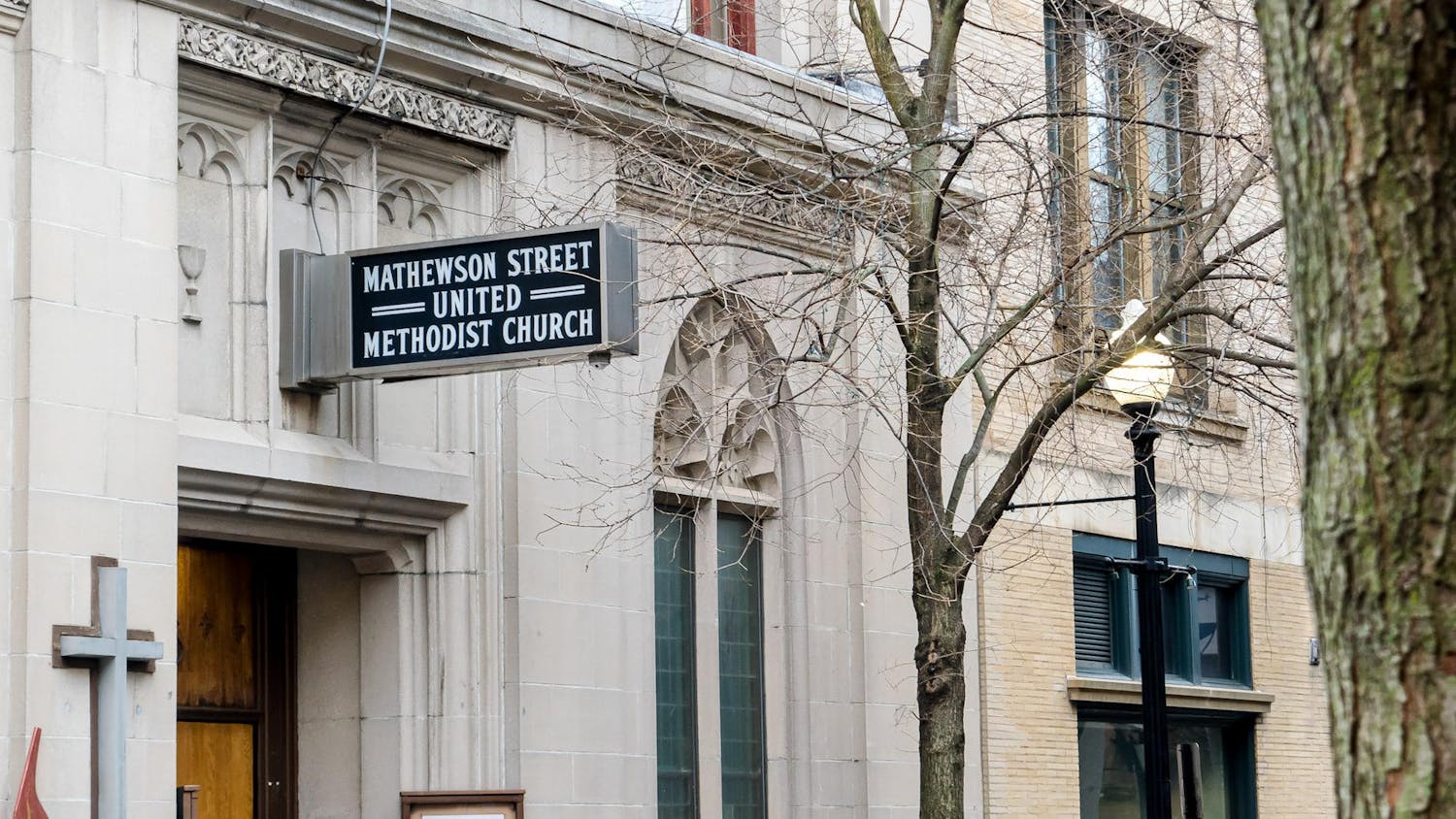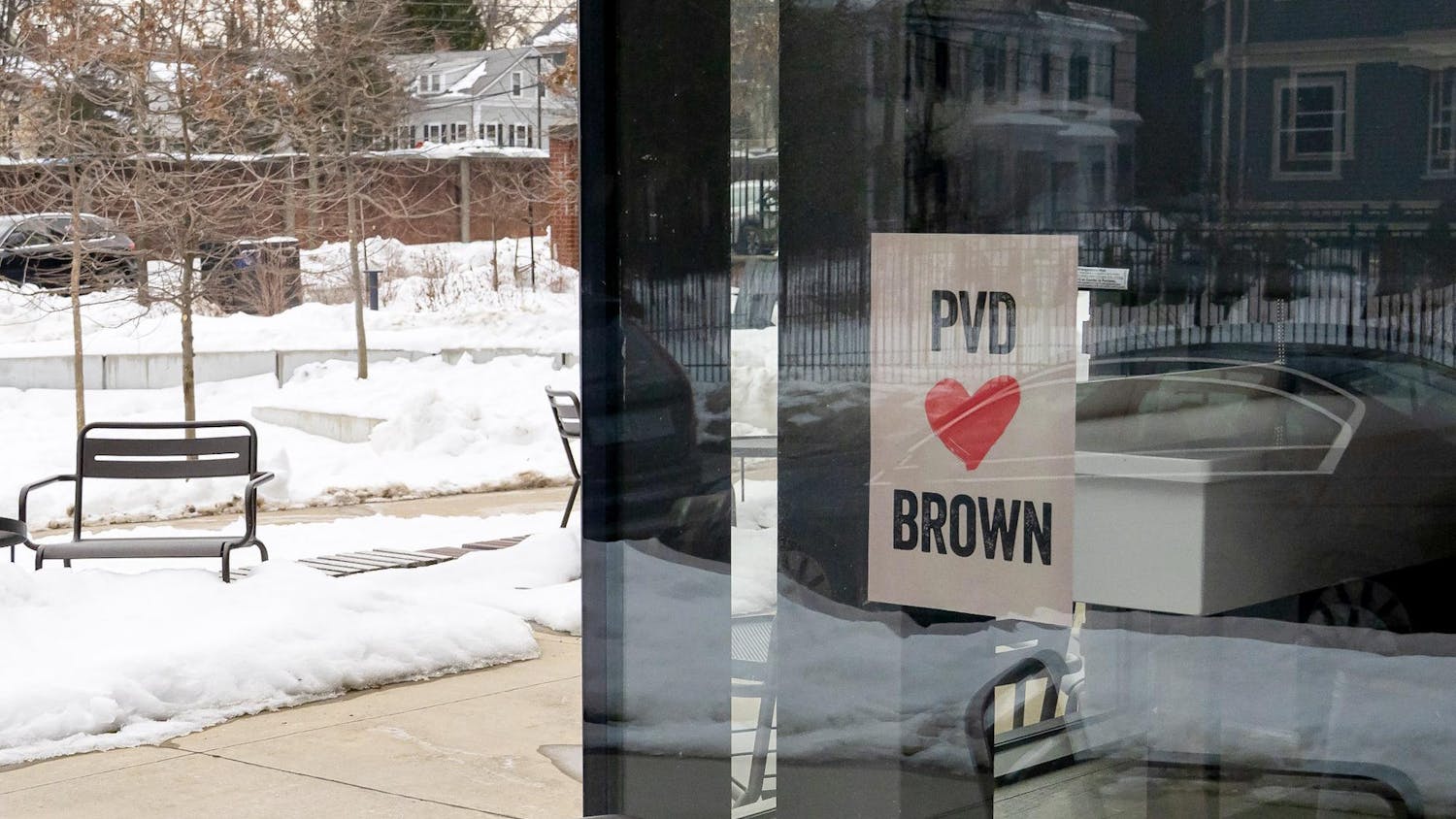State Sen. Rhoda Perry P'91, D-Providence, who has represented the University's district for 22 years, announced her retirement from politics earlier this year, putting her seat up for grabs in this election cycle. Two Democrats are squaring off in today's primary to replace Perry - Gayle Goldin, a leader at the Women's Fund of Rhode Island, and Maryellen Butke, a former small business owner and an advocate for education reform.
Goldin worked with Volunteers in Health Care - an organization that supports a broad range of efforts to increase access to health care for everyone in Rhode Island - when she first moved to the state in 1998. Goldin also challenged the State House to reform a law that prevented adoptive parents, who paid into the Temporary Disability Insurance program from receiving TDI support during a parental leave.
Butke has worked on policy reform at both state and national levels, most recently advocating for education reform through the Rhode Island Campaign for Achievement Now. But she credits her experience in the private sector as one of her greatest advantages over her opponent. "We need a primary focus on bolstering our economy, and the experience that goes with that," Butke said.
Goldin has received endorsements from the Democratic State Senatorial Committee, the National Education Association - the largest teachers union in the country - and Providence Mayor Angel Taveras. Butke said she did not receive any endorsements because she was enrolled in a program at Harvard Kennedy School of Government in August during the endorsement process.
Goldin received the Democratic State Senatorial Committee's endorsement the Thursday before Perry decided to retire - behavior that, experts have suggested implies Perry was trying to hand-pick her successor. At a discussion sponsored by the College Hill Neighborhood Association held between the candidates last Wednesday, Goldin rejected the notion that Perry had endorsed her for any reason other than that she supports her policies and believes in her experience. At the debate, Butke said that the allegations establish Goldin as "the status-quo candidate" - and that the status quo is not working for Rhode Island.
The candidates agree on most major policy issues, including pension reform, marriage equality and a woman's right to choose. The two candidates diverge most on the issue of education reform, Butke told The Herald. Butke has worked in schools and education reform for almost a decade, but Goldin has far less experience in the field, Butke said. "We have to go back to the issue of track record," she added.
Goldin could not be reached for comment.
Butke cited her time lobbying the state government to change the funding formula used to apportion state payments to cities and towns as among the qualifications that set her apart on this issue. "The number of students did not equal the amount of money (the cities and towns) received," Butke said. Now, after a long fight, schools receive the same amount of money per child, and if a student leaves a school, "the money follows the child," she said.
At the discussion, Goldin criticized Butke for highlighting charter schools at the expense of traditional public schools - a claim Butke says is overblown. Charter schools often provide high-quality seats for students, but can only be one part of a much larger solution, Butke said.
In response to Goldin's criticisms of the use of a lottery at charter schools to determine admissions, Butke said that traditional public schools use similar lotteries when demand outpaces supply.
"(Goldin) doesn't have experience in public education," Butke told The Herald. "I don't think her kids have ever gone to public schools. I don't know if there's even a clear plan."
In the debate, Goldin listed three goals for education - reinstituting state funding to transport high school students to school, investing in infrastructure and technology in schools and reforming the state's foster children system, which can force students to change schools if they change families.
On the same subject, Butke said she would support giving public schools more freedom and flexibility to experiment with their own reforms, implement a national evaluation system that would allow the state to identify and reward successful teachers and promote a labor-management compact that was pioneered by Steve Smith, leader of the Providence Teachers Union.




